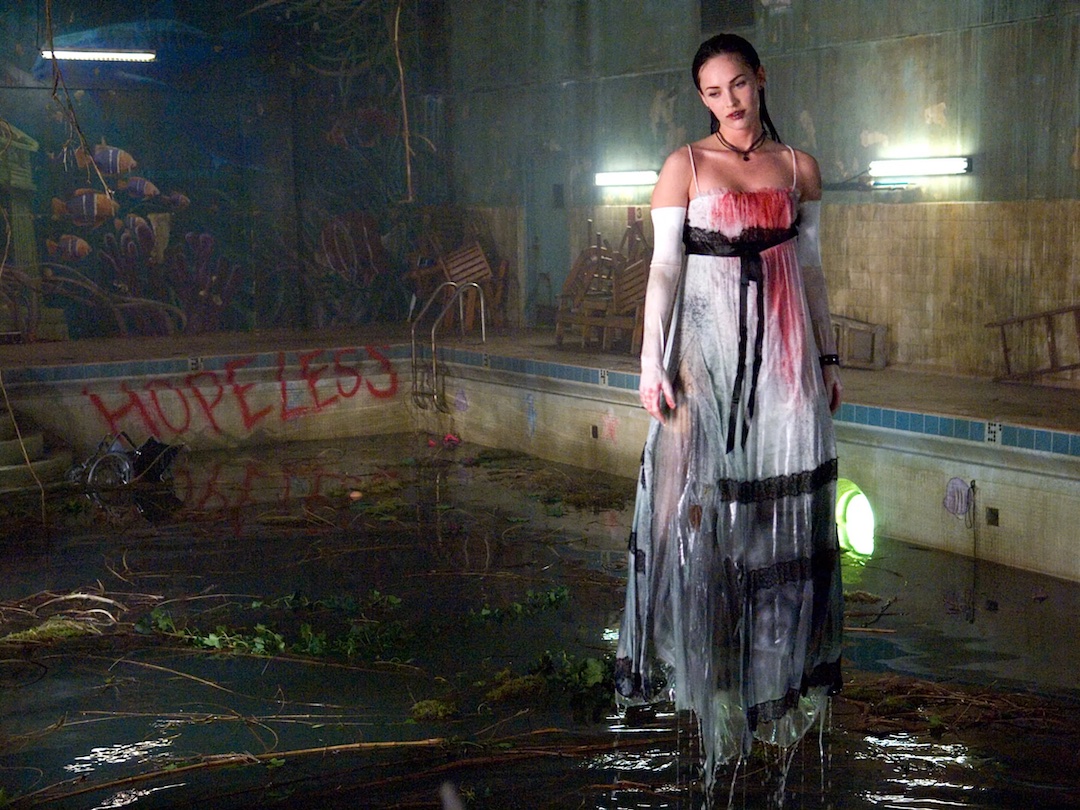Feminine Horror
Written by (2023-2024) Student Board Member Jean Halstead
*Content warning: violence, abuse, sexism, assault, & cannibalism*
Jenifer’s Body was met with a lukewarm response following its 2009 release, but looking back, it’s hard to believe this wasn’t by design. The film was marketed like any other irreverent, semi-erotic horror film, and attracted the respective audience. So viewers were understandably surprised to find that this film was instead a complex, angry, and gruesome depiction of young womanhood. Granted, it was not without sex, violence, and humor, but those elements were used to communicate a larger idea, rather than being the idea. Jenifer’s Body depicts what many teenage girls recognize and resent- the power that lust has over many of our male peers, and the many reasons why that power disgusts us.
For me, the first gut punch of many throughout the film was delivered through a throwaway one-liner from the lead singer of the film’s fictional boy band, Low Shoulder. With a burning building behind him and a drink in hand, he approaches the film’s female protagonists and says, “Listen, it’s really dangerous out here, you wanna head someplace safer, like my van?” The absurdity of this line likely earned a chuckle from some viewers, but I imagine I’m not the only one whose stomach turned. The nonchalant, uncaring, and humorous attitude of sex-driven young men is one almost every woman is familiar with. As this scene sardonically illustrates, even a gruesome, fiery, near-death experience won’t distract some men from what’s really important to them. This character’s lazy attempt to hide his intentions seems to allude to the fact that he assumes he will get what he wants, one way or another.
Watching this film reminded me of another excellent piece of horror media I found a while back, titled Possibly In Michigan. The film is much more experimental and- in my opinion- unsettling than Jenifer’s Body, yet it follows a similar story structure. The film centers around two female friends being harassed by men, who then become the antagonists by the end of the film. The theme of cannibalism can be found in both movies. In film, cannibalism is often used to describe obsessive and exploitative relationships, which seems even stronger in these instances, with the women eating men. It is a universal way to convey the ugliness of objectification, of making someone into a literal piece of meat.
Horror and femininity have a tumultuous relationship. Movies like Terrifyer use violent misogyny as a shock factor to disturb audiences. It is also overwhelmingly common for these films to feature a male antagonist and a female victim. Regardless of the reasons, though, women are essential for the genre to work. Allowing them to portray violent, evil antagonists will without a doubt make audiences uncomfortable. But that is, after all, the whole point of horror. While other genres use more restraint and grace when tackling the theme of misogyny, horror movies can meet female victimization with guns blazing and teeth bared. After all, women have a lot in common with the horror genre. Both have been underestimated, infantilized, and exploited. Both Possibly in Michigan and Jenifer’s Body use these similarities as advantages to create authentic, poignant, and entertaining horror.

